The Australian Government is now in a caretaker period in advance of the forthcoming election. Until a new government is sworn in, government operations are conducted in accordance with the caretaker conventions.
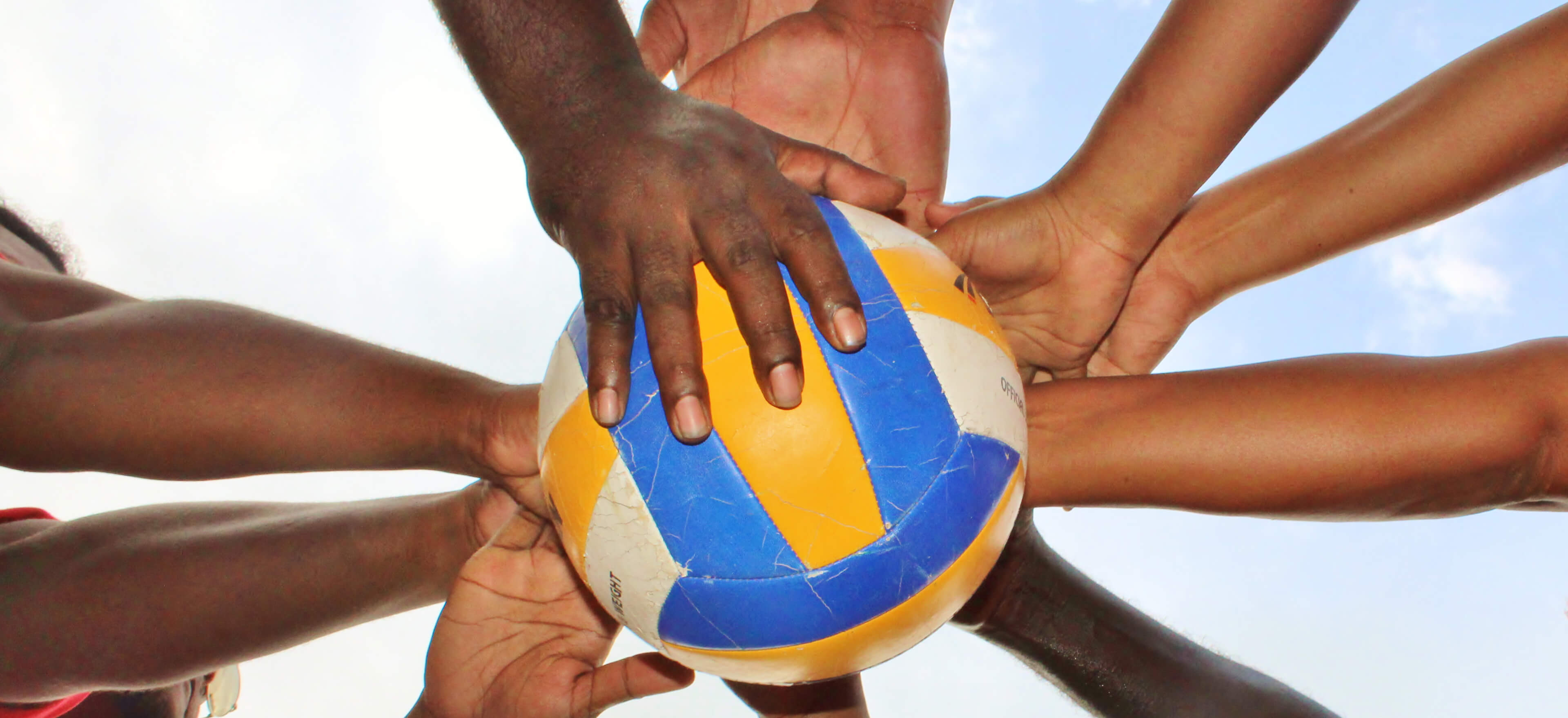
Our Partners
Find out more about our partners across the program.
PARTNERS ACROSS THE PACIFIC
Team Up works with more than 60 partners to deliver sport for development programs in six Pacific countries, and supports regional strategic partnerships across the Asia-Pacific that strengthen the sports sector in the areas of gender, disability, governance, safeguarding, leadership and communications. We also contribute to the sport for development international community of practice through working with global partners to share knowledge and experience from Team Up programs, and learn from others in the sector. Click on the logos below to read more about our partners.
- ABC International Development
- AFL Vanuatu
- Australian Defence Force (ADF)
- Australian Football League (AFL)
- Badminton Oceania Confederation
- Badminton Papua New Guinea
- Basketball Federation of Papua New Guinea
- Basketball Fiji
- Cairns Hockey
- CARE Australia
- ChildFund Australia
- Cricket Australia
- Cricket Fiji
- Family Planning NSW
- FIBA in Oceania
- Fiji Football Association
- Fiji National Rugby League
- Fiji Rugby Union
- Fiji Table Tennis Association
- Flinders University
- Football Australia
- Football Federation Samoa
- Grassroot Soccer
- Hockey Australia
- International Platform on Sport and Development
- International Safeguards for Children in Sport
- International Table Tennis Federation - Oceania
- KTF (Kokoda Track Foundation)
- Mai E Nima
- Motivation Australia Development Organisation
- Nauru Rugby Union
- National Rugby League (NRL)
- Netball Australia
- Netball PNG
- Netball Samoa
- Oceania Football Confederation
- Oceania Gymnastics Union
- Oceania Hockey Federation
- Oceania National Olympic Committees
- Oceania Paralympic Committee
- Oceania Rugby
- Organisation of Sports Federations of Oceania
- Pacific Games Council
- Papua New Guinea Deaf Association
- Papua New Guinea Football Association
- Papua New Guinea Gymnastics Federation
- Papua New Guinea Hockey Federation
- Papua New Guinea Olympic Committee
- PNG Rugby Union
- Rugby Australia
- Rugby League Samoa
- Samoa International Cricket Association
- Samoa Rugby Union
- Tonga Football Association
- Tonga Netball Association
- Tonga Table Tennis Federation
- UN Women Multi-Country Office, Fiji
- Vanuatu Aquatics Federation
- Vanuatu Cricket Association
- Vanuatu Department of Women's Affairs
- Vanuatu Football Federation
- Vanuatu Hockey Federation
- hard work - maintain and develop hockey programs in Vanuatu
- respect - treat all equally with respect
- equality - treat all equally no matter gender or status in life / people with disability
- integrity - be honest and show consistency in what you are doing
- Vanuatu Hockey For All - inclusive in all its programs.
- Vanuatu Paralympic Committee
- Vanuatu Volleyball Federation
- Wan Smolbag
- WaterAid PNG
- World Vision

The role of the Australian Broadcasting Corporation’s International Development Unit (ABCID) is to support better democratic governance by promoting public interest journalism and media that holds businesses, governments and other institutions in the Asia-Pacific region to account. It also enables media organisations in the region to connect with Australia and Australian values.
ABCID works with media organisations and communication partners to connect them with communities and empower people to have a voice on issues affecting their lives. It supports storytellers through training, sharing media expertise and providing technical and program support to partners, in three areas - skills and abilities, content creation and broadcast, and research.

AFL Vanuatu looks after community, talent and development programs in Vanuatu. A tourists’ paradise, AFL Vanuatu conducts Pikininikik programs across the island of Efate, and has recently launched in Santo, providing programs for up to 4,000 boys and girls in schools and communities around Vanuatu annually.
As well as an extremely competitive senior competition for men and women, AFL Vanuatu not only focuses on growing the sport, but also on developing good behaviours around health, disability inclusion and addressing gender-based violence.
With a strong team of development officers and a range of local and expatriate supporters in-country, it is only a matter of time before Vanuatu’s presence grows on the Australian rules football world stage.

The Australian Defence Force (ADF) Sports Cell was formed in December 2018 and is responsible for the delivery of sport-based programs that optimise, fitness, recovery, retention and morale.
The ADF Pacific Sports Program, a key ADF activity in enhancing relationships, partners with Team Up to deliver activities in the Pacific. These go beyond participation-based programs to focus on health and fitness, leadership, training, and sports officials’ accreditation courses, as well as community and school initiatives.
The ADF also delivers the Conventional Sports Program, in which approximately 8,000 Defence members participate via 29 sport associations, and the Adaptive Sports Program, which prepares ADF and former serving wounded, ill and injured personnel for major adaptive sporting events.

The AFL is an extraordinary force in Australia’s sporting, social and cultural landscape. Our purpose is to ‘progress the game so everyone can share in its heritage and possibilities’. From grassroots and community to elite, we work for all levels of the game and believe it is for everyone. We’re about improving and evolving the game, ensuring it continues to be relevant now and into the future.
Our team is more than 1000-strong with people working across Australia and internationally. Our diverse group of people are at the heart of everything we do and bring innovative ideas, new ways of thinking and live our values to ensure the AFL is a successful and high-performing organisation.
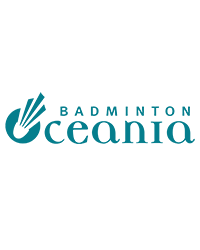
Badminton Oceania Confederation (BOC) is a not-for-profit continental confederation sports organisation, working under the flagship of the Badminton World Federation, with a vision to make badminton the leading regional sport accessible to all. BOC was formed in 1987 and now has 16 member associations.
A key role of the organisation is to support our members with good governance across multiple areas relevant to the development of badminton in their country and across the region, including: Shuttle Time (a sports development initiative); player development; coach education; Para badminton; AirBadminton and international events.

The Badminton Papua New Guinea Federation (BPNGF) is the official governing body for badminton in Papua New Guinea. Established in 2016, BPNGF’s vision is to make badminton accessible for all persons regardless of ability or disability. Its mission is to grow the sport in PNG, improve the standard of play, and make badminton an inclusive sport.
BPNGF is a member of the PNG Olympic Committee, PNG Sports Foundation and PNG Paralympic Committee and works closely with High Performance Sport PNG to promote badminton in the areas of Para badminton, inclusive GymBad, the school/community Shuttle Time program and outdoors with AirBadminton.

The Basketball Federation of Papua New Guinea (BFPNG) is the governing body for basketball in PNG and is built on a strong basketball tradition.
BFPNG is one of 22 affiliated national federations with FIBA Oceania. BFPNG strives to serve its affiliated associations, members, sponsors and the people of PNG in the most positive and beneficial manner. The partnership with FIBA Oceania has produced various community programs under the Basketball For Good platform including Hoops For Health, Twilight Basketball, Mum's A Hero and Pikinini Hoops.
BFPNG engages with health departments, the education sector, unemployed youth and women’s groups to build a stronger understanding of community problems and to use basketball to address those issues.

Basketball Fiji’s mission is to provide programs and competitions to develop the profile of basketball across Fiji and build the number of players, coaches, referees, administrators and sponsors within the basketball community.
As a community-minded organisation, Basketball Fiji uses sport to promote health and wellbeing and to reach those who might need it most. Basketball Fiji organises a number of community programs with FIBA Oceania under the Basketball For Good platform including Hoops For Health, ImAGirl, Bula Hoops and Mum's A Hero.
Basketball Fiji engages with health departments, the education sector, unemployed youth and women’s groups to build a stronger understanding of community problems and to use basketball to address those issues.
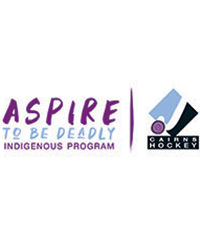
Cairns Hockey delivers Aspire to be Deadly, a sport for development program that has been running for more than 10 years and is aligned with the UN Sustainable Development Goals. It uses hockey as the vehicle to drive positive social outcomes for indigenous young women and girls in Far North Queensland, the Torres Straits Islands and Cape York.
Cairns Hockey programs are designed to promote ‘LIVE WELL, LEARN WELL, LEAD WELL’ outcomes though skilled training, education, engagement and relationship-building, combined with interactive cultural priorities and learning outcomes to promote better health, education and wellbeing. Strong leadership is driven by women, especially indigenous young women, highlighting the importance of role modelling within the program.

CARE Australia is a leading international aid organisation that works to alleviate poverty with a focus on gender empowerment, education, health and inequality. CARE in Vanuatu is one of 21 international members of the CARE Australia network.
With climate change, social inequality, and under-development ever-present threats to Vanuatu, CARE Australia has been working with local communities since 2008 to build resilience to the effects of natural disasters and climate change and increase the involvement of, and opportunities for, women and girls in the community and in national leadership.

ChildFund’s Sport for Development partnerships provide children with opportunities to play, learn and grow. Using integrated sport and life skills curricula, young people from vulnerable communities are equipped to overcome challenges, inspire positive social change, and take active leadership roles within their communities.
Under ChildFund Australia’s guidance, all Sport for Development programs contribute to achieving gender equality, reducing inequality, and ending violence against children, reflecting targets within the UN Sustainable Development Goals.
ChildFund Australia is an independent international development organisation that works to reduce poverty for children and is a member of the ChildFund Alliance, a global network of 11 organisations that assists children and their families in more than 60 countries.

Cricket Australia (CA) is the national governing body for the game in Australia. Australian cricket is administered by one national body and its members, the six state and two territory associations.
CA’s vision is for cricket to be Australia’s favourite sport, and a sport for all Australians. Its purpose is to unite and inspire communities through cricket. At an international level, CA was a foundation member of cricket’s world governing body, the International Cricket Council (ICC), and is one of 12 ICC full members.

Cricket Fiji is the national sporting organisation responsible for the development, promotion and governance of cricket in Fiji. The organisation achieves this through a range of initiatives including junior development programs, event management, high performance programs, cricket education courses, facility development, public relations, and marketing. Cricket Fiji is an Associate Member of the International Cricket Council (ICC).
Cricket Fiji has a history of implementing sport for development projects alongside its stand-alone cricket initiatives. In addition to projects run in primary and secondary schools, Cricket Fiji has also successfully delivered development projects in collaboration with the UN and the Australian Government’s Pacific Sports Partnerships program.

Family Planning NSW works to improve sexual and reproductive health outcomes in the Pacific and build the capacity of local partners to deliver services, education and information to clinicians, communities, educators, government officials and young people on contraception, cervical cancer and comprehensive sexuality education. Our projects empower women, girls and people with disability to make decisions about their own sexual and reproductive health.
Family Planning NSW are a partner in the Hook In4 Health program in Papua New Guinea and Vanuatu.

FIBA, the International Basketball Federation, is the world governing body for basketball. FIBA is a non-profit organisation with a mission to develop and promote the game of basketball, uniting the wider basketball community.
FIBA’s Oceania office has been working with national basketball federations for more than 50 years to develop the capacity of the 22 national federations within Oceania. FIBA’s extensive background in sport management, both in Australia and internationally at government, national and international sporting organisation levels ensure program quality is maintained.

Fiji Football Association consists of 23 district affiliates and more than 35,000 active players. The Just Play Programme in Fiji was established in 2012 and has developed key partnerships with government ministries, the Fiji Association for Sport and National Olympic Committee, Special Olympics, Fiji Special Schools, and the National Sports Commission to help facilitate the successful delivery of programming activities.
The Just Play 6-12-year, 13-18-year and the Just Play Emergency Programme are all run in Fiji along with the Just Play Festivals and the Just Play Cup. To date, 13,166 females and 15,348 males have participated in the program.

The Fiji National Rugby League (FNRL) is the single controlling body and administrator of rugby league in Fiji. The FNRL works hard to foster, develop, and grow the game and provide adequate funding for rugby league at all levels.

Founded in 1913, Fiji Rugby Union (FRU) is the national governing body for the sport and a member of Oceania Rugby, World Rugby, and the World Rugby Council.
As Fiji’s national sport, rugby union boasts more than 60,000 registered junior players (male and female) and more than 4,500 coaches.
Fiji’s national teams, the Flying Fijians and Fijiana (15-a-side), and its men’s and women’s 7s teams, are respected globally as regulars at world cups, on the HSBC World Sevens Tour, and at the Olympic Games. Fiji’s men’s 7s team became the pride of the nation after winning gold at Rio 2016 – the country’s first ever Olympic medal.

Fiji Table Tennis Association (FTTA) is the national governing body for table tennis in Fiji. FTTA is affiliated with the Fiji Association of Sports and National Olympic Committee (FASANOC). FTTA provides participation opportunities for all and regularly engages in development and high-performance events, hosting regional competitions, and organising both abled‑bodied and para activities. FTTA delivers the Smash Down Barriers inclusive table tennis program in and around Suva with exceptional results in the deaf and physically disabled communities. FTTA continues to gain momentum, with players competing in the Rio 2016 Olympic and Paralympic Games.

Flinders University was established in 1966 on the lands of the Kaurna nation, and is building on 50 years of achievement. The University has a vision to be internationally recognised as a world leader in research, an innovator in contemporary education and community engagement, and the source of Australia’s most enterprising graduates.
Flinders University staff Dr Deb Agnew and Dr Kathryn Jackson, who are advising on the Hook in4 Health program, are experienced and award-winning researchers in international nutrition and physical activity community engagement programs in the Pacific, the UK, and the Indian sub-continent.
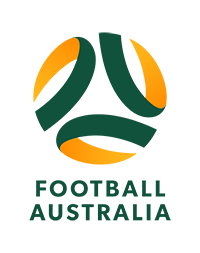
Football Australia is a partner in the Just Play programs, running in Fiji, Papua New Guinea, Samoa, Tonga and Vanuatu.

Football Federation Samoa was founded in 1968 and operates on the islands of Upolu and Savai’i.
The Just Play Programme was launched in Samoa in 2010 and has played a pivotal role in football development in the country ever since. Football Federation Samoa has developed key partnerships with local government ministries, the Special Olympics, and disability associations to help facilitate the successful delivery of the program. The Just Play 6-12-year, 13-18-year Programmes and Just Play Festivals have all been established in Samoa, where 28,947 females and 29,459 males have participated.

Grassroot Soccer (GRS) is an adolescent health organisation that leverages the power of soccer to educate, inspire and mobilise youth to overcome their greatest health challenges, live healthier, more productive lives, and become agents for change in their communities.
Since 2002, Grassroot Soccer programs have reached 13 million adolescents in more than 60 countries. As an international technical assistance provider with research guiding implementation, GRS supports in-country partners with: an evidence-based adolescent-focused strategy; youth-centred programme design; localised curriculum development; youth mentor/peer educator trainings; program optimisation guidance; and research, monitoring, and evaluation around self-efficacy, health, and relationships.

With values of leadership, integrity, excellence and inclusion, Hockey Australia supports more than 125,000 registered participants of all ages to regularly play hockey in Australia. It is also responsible for the administration and operation of Australia’s national representative teams, including the world-renowned Kookaburras and Hockeyroos, which between them have won 12 Olympic and 15 World Cup medals. Hockey Australia has an unblemished public record in Australian sport in relation to doping, corruption, gambling and fraud. Hockey in Australia is a truly inclusive sport with near 50/50 profiling of participants from a gender perspective, which starts at the top with a board of directors of five women and four men.

The International Platform on Sport and Development (sportanddev) is a hub for the sport and development community to share knowledge, build good practice and create partnerships. The sportanddev website is a network of more than 1,000 organisations that shares news, commentary articles, job opportunities and events.
The Australian Government is a sportanddev steering board member. The partnership has put Pacific countries into the global limelight, with organisations from the region regularly contributing to the sportanddev website. In collaboration with the Commonwealth, sportanddev and the Australian Government have also created an online course, Sport for Sustainable Development: Designing Effective Policies and Programmes.
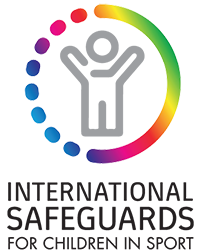
The International Safeguards for Children in Sport initiative involves more than 70 organisations across six continents, working together to make sport safe for children.
Through the collective action of members, the initiative has developed guidance and tools that national sports federations, clubs, and sport for development NGOs can use to make their activities safer, as well as providing targeted advice to governments and international federations in terms of policy.
Together the members are working to make sure that all children, everywhere, are safe in sport, by raising awareness of safeguarding and supporting organisations to access effective safeguarding advice and resources.

International Table Tennis Federation – Oceania (ITTF-Oceania) is recognised by the International Table Tennis Federation as the governing continental body of table tennis in the Oceania region. ITTF-Oceania is responsible for managing and organising high performance and development activities across its 24 member countries.
ITTF-Oceania provides and promotes table tennis opportunities from grassroots to elite level to ensure that all individuals, regardless of gender, age, disability, race or cultural background can reach their potential, as an athlete, coach, administrator or official.
ITTF-Oceania invests in nurturing talented athletes, while encouraging inclusion and programs to develop communities and promote both individual and socio-economic growth.

KTF is Australian NGO working alongside people and communities to improve lives, livelihoods and futures in Papua New Guinea, via collaborative programs that assist remote and rural communities to improve access to education and quality and accessible healthcare, promote equality for all, and foster the next generation of PNG’s leaders.
Over the past decade, KTF has expanded program delivery to 16 of PNG’s 22 provinces, with an extensive community and stakeholder network in Oro province, home of the historic Kokoda Track, KTF’s heartland and location for the Kicks 4 Kokoda project to catalyse transformation and social change among the region’s youth.
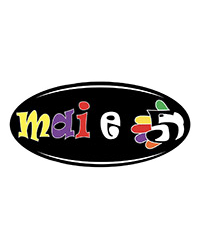
Tonga Health supports and funds the Mai e Nima (Give me Five) campaign, which encourages primary school students to consume at least five servings of fruits and vegetables a day. The Mai e Nima concept is taught in all primary schools and further strengthened by mascots.
Mai e Nima partners with National Rugby League (NRL) to deliver the rugby league program in Tonga.
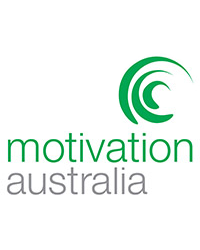
Motivation Australia is an Australian not-for-profit that runs life-saving and life-changing projects in developing countries. We hope that, one day, everyone will have access to the services they need to be included and participate in their lives.
In places with fewer resources, health services are often far away, lack the necessary supplies and trained staff to provide the care that people need. Motivation Australia strengthens the ability of local organisations to provide frontline services, right where people need them.

Nauru Rugby Union (NRU) was established in 2011 and is a member of Oceania Rugby. Rugby union was played socially in Nauru until 2014 when sevens tournaments were introduced. By 2015, NRU had sent its first national men’s sevens team to the Pacific Games and Oceania Sevens Championship.
Over the past five years, activities have been delivered across all communities, widening participation. Women’s rugby union started in the country in 2016, and the Nauru’s women’s 7s and men’s 15-a-side teams have gained entry to regional competitions. Rugby union continues to grow in popularity across social and competitive formats.

The National Rugby League (NRL) manages the NRL Telstra Premiership, the world’s premier rugby league competition featuring club teams from Australia and New Zealand. In a typical year, the Premiership attracts around three million spectators and more than 100 million television viewers.
The NRL believes that rugby league is a platform for driving powerful social change and delivering positive messages about health, education, inclusiveness and diversity. The organisation proudly supports one of the largest and most comprehensive community relations program in Australian sport, and is a leader in sport for development programs across the Pacific.
The NRL is also responsible for the NRL Nines, NRL Touch Football, and the national men’s and women’s teams.
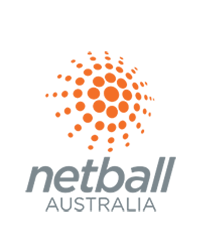
Netball Australia is the national governing body for netball in Australia. Netball is one of the biggest team sports in Australia, played by over 1.2 million men, women and children, and is the number one participation sport for Australian girls.
Netball in Australia comprises grassroots competitions around the country through to the world’s premier netball competition, Suncorp Super Netball, and the world’s current number one netball team, the Origin Australian Diamonds. Netball aims to connect with local communities and empower women to shine.
Netball Australia has been part of the Pacific Sports Partnerships (PSP) since its inception and has worked in the Pacific since 2009.

Netball PNG is the national governing body for netball in PNG, located in Port Moresby. Netball is one of the largest organised participation sports for women and girls in PNG, and is also gaining popularity with men and boys. Netball is established in four regions of PNG with an active membership of 14 member associations.
Netball in PNG consists predominantly of grassroots competitions. In the world netball rankings, PNG currently ranks 32 and is third in the Pacific region.
Netball PNG, under the ‘One Netball’ vision of its recently launched Strategic Plan 2019-2023, aims to enhance collaboration and growth within the PNG netball community through active participation under Team Up.

Netball Samoa is the peak national sporting organisation for netball in Samoa, with a vibrant and all-inclusive audience and holding claim to having the highest number of females participating in a sport in Samoa.
The organisation has a unified aim and vision to embed good governance principles in the development, promotion and administration of netball activities for all Samoans.
Netball Samoa is excited to join forces and advance to the next level through Team Up, a partnership which will break new ground by creating opportunities and new pathways whilst establishing efficient processes and systems.

Since 1964, Oceania Football Confederation (OFC) has been on a mission to grow the game of football in both quality and quantity in Oceania through education and development and raising the profile of our game. Today we continue to strive to achieve the highest level of sport by creating clear, sustainable pathways to raise the quality of domestic, national and international football competitions in the region alongside effective and sustainable programmes for our elite and talented footballers.
Together in football, OFC fosters performance on and off the pitch and enhances social, economical and educational development ensuring the continuous growth of our game, our people, our culture and our communities in the Pacific.

Recognised by the International Gymnastics Federation in 2018 as the continental union for the Oceania region, Oceania Gymnastics Union is the governing body responsible for the administration, promotion and development of gymnastics with National Gymnastics Federations in Oceania. Its eight member nations are American Samoa, Australia, Cook Islands, Fiji, Guam, New Zealand, Papua New Guinea and Tonga.
Our vision is: We are a sustainable and accountable organisation focused on culture, community and people. Our values are: Respect/Integrity/Cultural Awareness/Inclusiveness/Transparency. Our purpose is: We exist to develop healthy communities through lifelong movement.

Oceania Hockey Federation (OHF) is the lead organisation for ‘Hook in4 Health’. OHF has delegated authority through the International Hockey Federation (FIH) for the administration, promotion and development of hockey with member nations in the Pacific region. OHF delivers accredited FIH coaching, officiating and educator courses, and multi-sport governance/administration courses as part of the Oceania Sport Education Program.
OHF’s vision is to provide ‘equally amazing sport for life experiences’. Our values of inclusion, empowerment, innovation and accountability guide our decision making and ways of working. Our purpose is to be an equitable, inclusive, sustainable and innovative hockey federation supporting active lifestyle, health, community development and international performance.
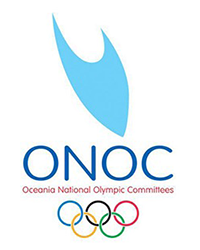
The Oceania National Olympic Committees (ONOC) is one of five Continental Associations of the International Olympic Committee’s membership. ONOC has 17 National Olympic Committees (NOCs) as members and seven associate members.
ONOC was established in Baden-Baden, Germany in 1981 and is registered in Fiji as a Company Limited by Guarantee under the Fiji Companies Act 2015.
ONOC plays the lead regional role in helping Oceania countries prepare for the Olympic Games and leads in promoting sport and physical activity in the Pacific.

The Oceania Paralympic Committee (OPC) is one of five regional organisations representing the International Paralympic Committee (IPC). The membership of the OPC is made up of the National Paralympic Committees (NPCs) within the region that are recognised by IPC as the sole bodies representing ParaSport within each nation.
At present the OPC has nine members: Australia; Fiji; Kiribati; New Zealand; Papua New Guinea; Samoa; Solomon Islands; Tonga and Vanuatu. With a strong focus on development, the OPC works closely with the Pacific island NPCs and their stakeholders to create sustainable pathways and inclusive practices for emerging ParaSport athletes.

Oceania Rugby is the regional body for rugby union with 16 member unions across the Pacific islands, Australia and New Zealand. Its mission is to promote rugby union as a sport for all, true to its values of respect, solidarity, passion, integrity and discipline, and contribute to rugby union’s governance and development in the region.
Oceania Rugby has emerged as a sport-for-development leader with interventions focussed on gender equality, preventing violence against women and girls, and deaf inclusion. An approach combining high-quality rugby union, development practice, and partnerships with international agencies (UN Women, ChildFund Australia) has produced programs such as the well-regarded Get into Rugby PLUS.

The Organisation of Sports Federations of Oceania (OSFO) exists to create an environment that assists members to enhance the role of sport in communities in the Oceania region. OSFO’s vision is that its highly-regarded technical sport expertise will assist the membership in providing the best possible support to their communities, and its united voice will be relevant, effective and influential within the region.

The Pacific Games Council is the governing body for the Pacific Games and Pacific Mini Games – the Oceania region’s premier multi-sport event since its inception in 1963. The Council’s membership comprises 22 island nations and territories via their Pacific Games Associations (National Olympic Committees), plus Australia and New Zealand who were admitted in 2019 as associate members.
The members meet in General Assembly annually, and every four years elect a five-member Executive Board to govern daily business. The Pacific Games have a maximum of 24 sports, 16 of which are compulsory, whilst a Pacific Mini Games hosts a maximum of 12 sports.

The Papua New Guinea (PNG) Deaf Association was established in 2012. A disabled persons’ organisation (DPO) registered with Investment Promotion Authority (IPA) of Papua New Guinea, the PNG Deaf Association is a national, single line, stand alone or independent DPO under the national DPOs umbrella organisation, PNG Assembly of Disabled Persons.
The PNG Deaf Association is a not-for-profit organisation whose main aims and objectives are awareness and advocacy in promotion of inclusion and sign language status in PNG education, human rights, sports education and social inclusion. PNG Deaf Association is a deaf-lead organisation - led by deaf citizens for deaf citizens in PNG with support of sign language interpreters. Members of the PNG Deaf Association have been instrumental in leading and developing deaf rugby in PNG.

The Papua New Guinea Football Association was established in 1962 and boasts approximately 200,000 players. However, the country’s developing status and the geographical challenges of the landscape are obstacles to football development. The Just Play Programme was introduced to PNG in 2011 and has developed key partnerships with government ministries as well as municipalities in the National Capital District and Bougainville to help facilitate the successful delivery of programming activities.
The Just Play 6-12-year Programme has been run in PNG and, to date, 21,970 females and 25,303 males have participated.

The Papua New Guinea Gymnastics Federation (PNGGF) is the official governing body for gymnastics in Papua New Guinea. Established in May 2018, PNGGF’s mission is: to significantly increase gymnastics participation for all; to promote and support ongoing skills and educational opportunities for athletes, coaches and officials; and to introduce national competition performance opportunities for athletes to represent PNG at the international level.
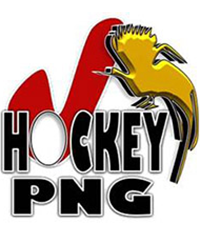
The Papua New Guinea Hockey Federation (PNGHF) became incorporated in 2007. Our mission is to promote a better lifestyle and healthier living through the sport of hockey. We have an inclusive philosophy and wish to develop activities for all to achieve our mission.
Hockey is geographically promoted and played under six associations across PNG - Port Moresby, Lae, Madang, Manus, East New Britain and West New Britain. In 2015, as a result of the legacy of that year’s Pacific Games held in Port Moresby, a new artificial water-based hockey pitch with a dedicated pavilion was leased to PNGHF to manage.

PNG Olympic Committee (PNGOC) develops Papua New Guinea’s elite athletes by providing the required resources for them to train for, and excel in, organised international sporting competitions. PNGOC also contributes to building a peaceful and better world by educating youth through sport, practised in accordance with Olympism and its values of excellence, friendship, and respect, which support Team Up's objectives of inclusion, accessibility, and safety in sport.
PNGOC’s athletes serve as sporting icons and international role models and have inspired more than 30,000 students and athletes by delivering the Olympic Values Education Programme in 50 schools across 13 provinces.

The PNG Rugby Union is a member of Oceania Rugby and World Rugby. While their national men’s rugby union team, the Pukpuks, played its first international in 1966, the sport’s growth has been most rapid in recent years, not only among men but also among women and the deaf community following the introduction of deaf rugby in 2018 and a focus on inclusion.
In 2019, 6,660 participants (3,850 boys and 2,810 girls) participated in the modified junior Get into Rugby program. Along with the performances of the women’s 7s team at regional tournaments, this has increased the sport’s profile and following among women and girls.

Rugby Australia is rugby union’s national governing body in Australia and a member of World Rugby and Oceania Rugby.
Australia is regarded as a world powerhouse in men’s and women’s rugby union, represented nationally by the Wallabies and Wallaroos (15-a side) and the AU 7s men and AU 7s women.
Domestically, there are more than 246,000 active male and female rugby union players across nearly 1000 clubs, with diversity supported through a range of innovative programs and community partnerships.
Rugby Australia has enjoyed a long friendship with our Pacific neighbours and are proudly supporting Team Up programs in Fiji, Samoa, Papua New Guinea (PNG) and Nauru.

Rugby League Samoa is the governing body for the sport of rugby league in Samoa. Its mission is to develop and promote the code as a bona fide sport in Samoa and its overseas chapters in order to create opportunities for economic growth.

Samoa International Cricket Association (SICA) is the national governing body for the game in Samoa. As a non-profitable sport federation, SICA aims to enhance the lives of Samoans through the development and promotion of cricket.
SICA’s vision is for “cricket to become the number one sport in Samoa”. SICA strives to make cricket a sport that can make a difference, resonate with people’s values, and complement their needs and wants.
SICA’s goal is to be recognised as the number one leading sport in good governance both on and off the field, including performance of local and national teams, staff, volunteers, board members and relationships with internal/external partners and stakeholders.

Rugby union is the national sport of Samoa, and the country enjoys a deep and rich history of producing some of the world’s best players. Lakapi Samoa (previously known as Samoa Rugby Union) is rugby union’s national governing body, and a member of Oceania Rugby and World Rugby.
Samoa’s national teams Manu Samoa (men) and Manu Sina (women) are national ambassadors, and rugby union events at all levels garner passion and patronage in Samoa. Manu Samoa have played at every Rugby World Cup (RWC) since 1991. Manu Sina are growing increasingly competitive and will look to compete in their fourth RWC in 2021.

Established in 1965, Tonga Football Association became affiliated with FIFA in 1994. Tonga has been involved in the Just Play Programme since its inception, piloting the programme in 2009, and has continued to be one of the leading member associations in terms of innovation and application of the program and its curriculum.
Tonga Football Association has developed key partnerships with the Office of Disaster Management, Special Olympics, Tonga Women and Children’s Crisis centre and the Red Cross to help facilitate the delivery of programming.
Tonga runs the Just Play 6-12-year, 13-18-year Programmes, Just Play Emergency Programme, Just Play Festivals, and the Just Play Cup. To date, 10,503 female and 9,402 males have participated in the program.

Tonga Netball Association (TNA) has been the main body for developing netball in Tonga for the past 10 years and has become one of the most well respected sporting organisations in Tonga.
Running regular sport for development programs, TNA provides opportunities and safe spaces for the Tongan community, in particular women and girls, to increase levels of physical activity, make important social connections, and become part of a strong netball community.
Netball participation in Tonga predominately reaches women and girls, with approximately 80 per cent of participants being female, demonstrating the importance of netball in promoting gender equality throughout Tonga.
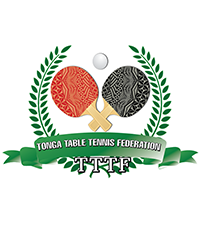
Tonga Table Tennis Federation (TTTF) is the national governing body for the sport in the Kingdom of Tonga and is locally affiliated with the Tonga Sports Association and National Olympic Committee (TASANOC).
TTTF aims to provide access to table tennis for individuals of all ages, genders and abilities to develop their skills, reach their potential, and enjoy a healthy lifestyle.
Activities range from grassroots and community participation level to developing national team players, coaches, and officials. This includes training camps and skill sessions, school programs and outreach events, regular competitions and community celebrations.

UN Women is the global champion for gender equality, working to develop and uphold standards and create an environment in which every woman and girl can exercise her human rights and live up to her full potential.
The UN Women Multi-Country Office (MCO) in Fiji covers 14 Pacific island countries and territories. Using rugby union to promote gender equality and, longer term, to prevent violence against women and girls is central to an agreement between UN Women and Oceania Rugby, which is supported by the Pacific Partnership to End Violence Against Women and Girls (Pacific Partnership), primarily funded by the European Union, the governments of Australia and New Zealand, and UN Women.

Vanuatu Aquatics Federation (VAF) is the governing body for aquatics in Vanuatu, recognised by the international swimming federation, FINA, and by the Vanuatu Association of Sports and National Olympic Committee (VASANOC). VAF is run by a five-person executive board. Since VAF was established, eight clubs in rural community settings have formed through a grassroots-focused strategic plan. VAF has been housed at Wan Smolbag (WSB) since VAF’s incorporation in 2014 and the two organisations have partnered in order to deliver programs to communities. VAF utilises WSB’s strong internal systems such as financial management of funds, capacity to manage employees, and gaining access to resources within the WSB monitoring and evaluation and communications teams.

Vanuatu Cricket Association (VCA) is the governing body of cricket in Vanuatu. It was created upon affiliation with the International Cricket Council (ICC) in 1995 and gained associate status in 2005.
The development of community cricket has been a key focus for VCA for more than 20 years. Its Community Cricket Development Program that began with 400 participants in the year 2000 now reaches more than 25,000 participants in schools and communities across four provinces. VCA also maintains a strong local club competition structure at both junior and senior levels, which feeds into their high-performance streams.
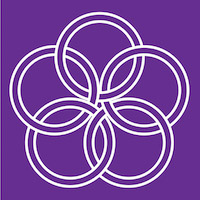
The Vanuatu Department of Women’s Affairs is a partner in the AFL Vanuatu Gel-Kik program.

Vanuatu Football Federation was founded in 1934 and introduced the Just Play Programme in 2011. The program has been widely embraced across the entire nation, with the Just Play Emergency Programme playing a significant role in disaster recovery efforts.
The Vanuatu Football Federation has developed key partnerships with government ministries and disability associations to help facilitate the successful delivery of the program. In Vanuatu, the Just Play 6-12-year, 13-18-year Programmes, the Just Play Emergency Programme and Just Play Festivals are all run. To date, 8,084 females and 11,660 males have participated in the program.
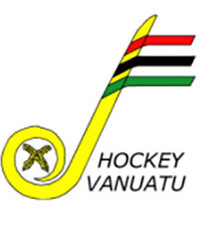
Vanuatu Hockey Federation (VHF) was established in 2007 and has been successful in providing opportunities for children, young adults and adults in Vanuatu to ‘plei’ hockey. VHF won the prestigious International Hockey Federation (FIH) Etienne Glichitch Award in 2014. Internationally and locally, VHF has provided a safe environment for its participants and management team.
The core values of VHF are:
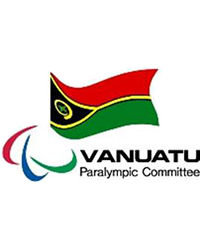
The Vanuatu Paralympic Committee (VPC) is an independent, not-for-profit organisation that works to promote Paralympic sport in Vanuatu at all levels, from community to international. A key focus for VPC is to support member organisations in the delivery of programs and for those organisations that support para-athletes.
The increased participation over recent years of people from the disability community in a variety of sports is testament to the advocacy and development of disability inclusion sports programs in which VPC has played a key role.

With volleyball a popular sport across Vanuatu, the establishment of the Vanuatu Volleyball Federation (VVF) more than 20 years ago has served to support and promote the passion for the game and develop it as a sporting focus for the nation, both at a local level and at an elite representative level.
The Volley4Change (V4C) program is the sport for development initiative launched in 2014 under VVF. It aims to use volleyball to promote health, fitness through physical activity, as well as highlighting the importance of social issues such as gender empowerment, with significant participation of women and girls, and disability inclusion, with para-volleyball becoming a key element of the V4C program.

Wan Smolbag (WSB) is the largest local non-government organisation (NGO) in the Pacific and started as a group of voluntary actors in 1989. WSB currently employs 145 staff and has multiple programs that work to address needs raised by communities across Vanuatu on health, youth issues, good governance, gender inclusion and environment. WSB is home to the Pacific’s only disability theatre group and also houses Vanuatu’s only LGBTQI organisation, VPride. Its members are encouraged to take part in swimming and other aquatic classes that WSB offers as part of its youth centre services. Sport is a major focus of WSB. Its Port Vila centre hosts Vanuatu’s only astroturf pitch and is the home of hockey in Vanuatu.

WaterAid is a global leader in equitable and inclusive WASH and a gender justice champion that embraces the principles of equality and non-discrimination to ensure universal access to water, sanitation and hygiene for all.
Since starting operations in Papua New Guinea (PNG) in 2004, WaterAid PNG has worked with partners to implement WASH activities in schools, healthcare facilities and communities across multiple provinces. Since 2013, WaterAid has reached 10,675 people in communities and 5,620 school children and teachers with access to WASH services, and a further 10,147 students with handwashing facilities and innovative hygiene behaviour change campaigns in PNG.

World Vision is a Christian relief, development and advocacy organisation dedicated to working with children, families and communities to overcome poverty and injustice. It has been operating in Vanuatu since 1981, and is currently working in four of Vanuatu’s six provinces in the areas of inclusive water, sanitation and hygiene (WASH), resilient livelihoods, ending violence, and COVID-19 response.
World Vision partners with the Vanuatu Cricket Association on the Appeal for Change program, and brings to the partnership six years of experience working to prevent gender-based violence and safeguard children in Vanuatu, using faith-based approaches to positively transform gender norms and foster safer, more inclusive communities.

Our Stories

Celebrating #IDSDP2025
05 April 2025- Gender
- Multi-sport
- Multi-country

Celebrating #IWD2025
07 March 2025- Gender
- Multi-sport
- Multi-country

Regional Safeguarding Workshop to Progress Safe Sport Practices in the Pacific
21 November 2024- Gender
- Multi-sport
- Multi-country

Round three of Play for Equity
05 November 2024- Gender
- Multi-sport
- Multi-country

